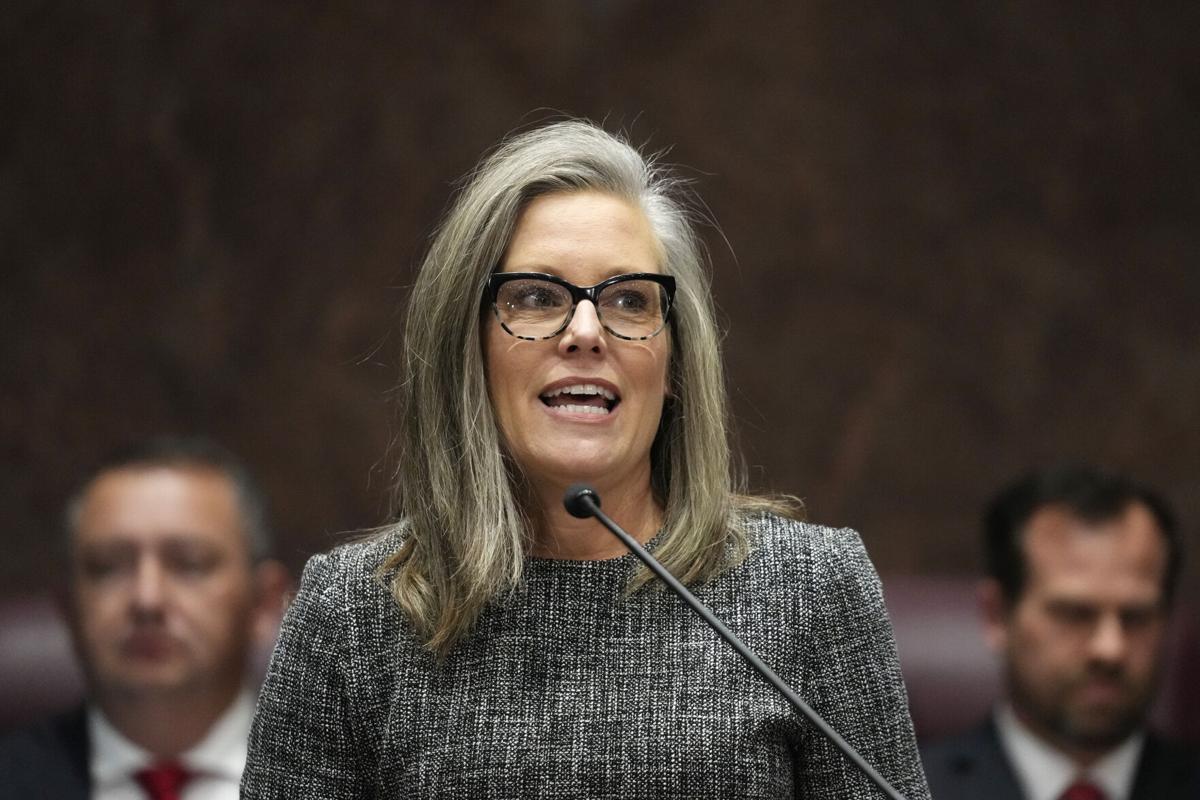PHOENIX — Senate President Warren Petersen is suing Gov. Katie Hobbs over what he calls her end-run around laws giving the Senate the power to confirm, or reject, her picks to head state agencies.
In the new lawsuit, Petersen, a Gilbert Republican, said the Democratic governor’s nominations are conditional on approval by the GOP-controlled Senate.
Petersen does not deny that Sen. Jake Hoffman, whom he tapped to head a special committee to review Hobbs’ picks, has failed to call for votes on some of her nominees, and in other cases has yet to even schedule a hearing.
But Petersen contends that does not give Hobbs the power to do what she did. She withdrew the pending nominations and then had each nominee reappointed as “executive deputy directors’’ of the same agencies. Since each agency has no director, Hobbs says that gives each deputy the same powers as if they were in charge — and without the need to get Senate approval.
Hobbs has said Hoffman’s inaction left her no choice but to find another way to ensure that “state government can continue to function for Arizona.’’
Now Petersen wants Maricopa County Superior Court Judge Joseph Mikitish to order Hobbs to send her nominations to the Senate by Jan. 12.
“In a fit of political pique, the governor withdrew her nominations for the directorships of 13 agencies that, by law, must be administered by Senate-confirmed appointees,’’ wrote an attorney Petersen has retained, Thomas Basile.
He says that, despite Hobbs’ actions, the director positions “remain vacant.’’
“In refusing to nominate agency directors and bypassing the Senate’s advice and consent process, the governor has violated a binding statutory directive, acted in excess of her lawful authority, and failed to perform a nondiscretionary duty’’ of presenting her nominees for Senate review, Basile wrote.
“She took lawful action”
Hobbs’ spokesman Christian Slater said Wednesday that she “took lawful action to fulfill her duties and ensure Arizonans can continue to rely on critical services for state agencies.’’
He emphasized that Hoffman refused to move forward with the nominations.
“Extremists like Jake Hoffman would rather engage in partisan attacks to push their radical political agenda than work across the aisle to support veterans, grow jobs and invest in small businesses, and protect Arizona’s children,’’ Slater said, referring to some of the agencies whose picks for directors have not been considered by Hoffman’s Committee on Director Nominations.
“She stands ready to work with anybody in the Senate who is serious about putting the political games aside,’’ Slater said.
Hoffman responded in kind.
“There’s nothing extreme about protecting the citizens of Arizona from unelected, unqualified partisan hacks who seek to advance a radical political agenda instead of doing what’s best for the state and its people,’’ he told Capitol Media Services.
Hoffman said that Hobbs, in trying this maneuver, “has rendered every decision, new hire and operational change by her fake agency directors illegitimate and open to legal challenge.’’
Hobbs withdrew the nominations in September. In a letter to Petersen, she said Hoffman, a Queen Creek Republican, was not just “disrespectful’’ to her choices but trying to “leverage the confirmation of qualified nominees for the implementation of his policy preferences within the executive branch.’’
“He has contacted nominees to imply that their confirmation hinged on the rescission of long-standing agency policies over which he has no authority,’’ Hobbs told Petersen. “He has held up the confirmation of a nomination simply for identifying as pro-choice.’’
System changed this year
But Petersen, in his lawsuit, said Hoffman and the Senate may consider any factors they want in determining a nominee’s qualifications, not just those required by law, as long as they do not violate the state or federal constitutions.
He said through his attorney that there’s no legal requirement for the Senate to have a hearing or vote on a nomination.
“The Senate may, in its discretion, decline to hold a vote on a nominee,’’ Petersen said, adding that failure to have a vote does not automatically mean that person is confirmed.
If there is no confirmation, Petersen said, the governor is free to appoint that person as an “interim director.’’ But he said state law limits that appointment to no more than one year, after which she has to pick someone else.
Get your morning recap of today's local news and read the full stories here: tucne.ws/morning
Much of the dispute revolves around Petersen’s decision to not just create the special committee but to put Hoffman, the head of the Arizona Freedom Caucus and one of the more conservative lawmakers, in charge.
It hasn’t always been that way.
Under the old system, a nominee would go to a committee with comparable expertise. This year that would have meant Hobbs’ choice of Jennifer Toth to head the Arizona Department of Transportation, for example, would have gone to the Senate Transportation and Technology Committee.
Instead it went to Hoffman’s panel, and he asked Toth what she thought about the role of racism in road construction decisions and of toxic masculinity in accidents. She responded that she would be carrying out policies set by the governor and the Legislature and that her feelings aren’t relevant.
Hoffman has not put her confirmation up for a vote.
Others haven’t even gotten a hearing, like Karen Peters to head the Arizona Department of Environmental Quality.
There was an indication, as recently as two weeks ago, that litigation might be avoided, with Petersen saying there had been talks. Hobbs, asked about that, would respond only that she was “disappointed’’ the Senate president shared that fact.





